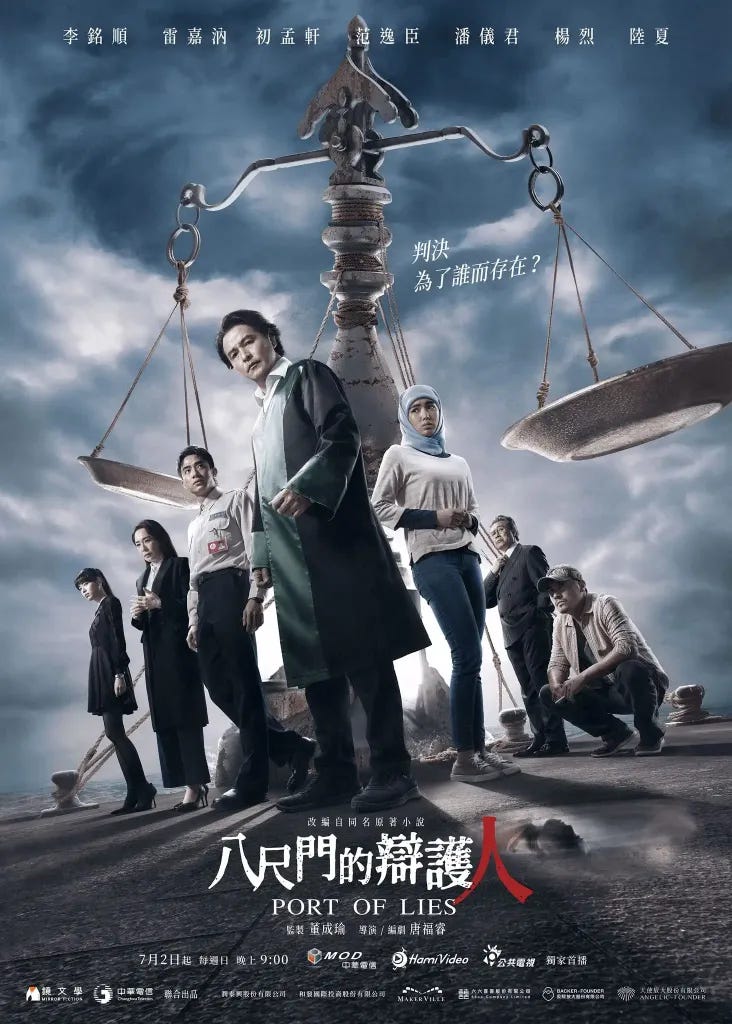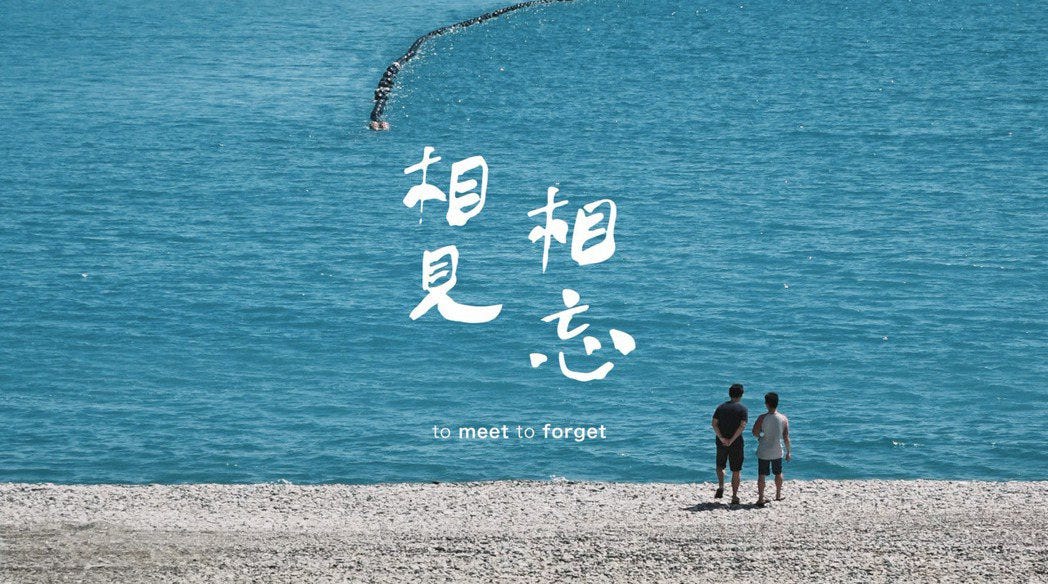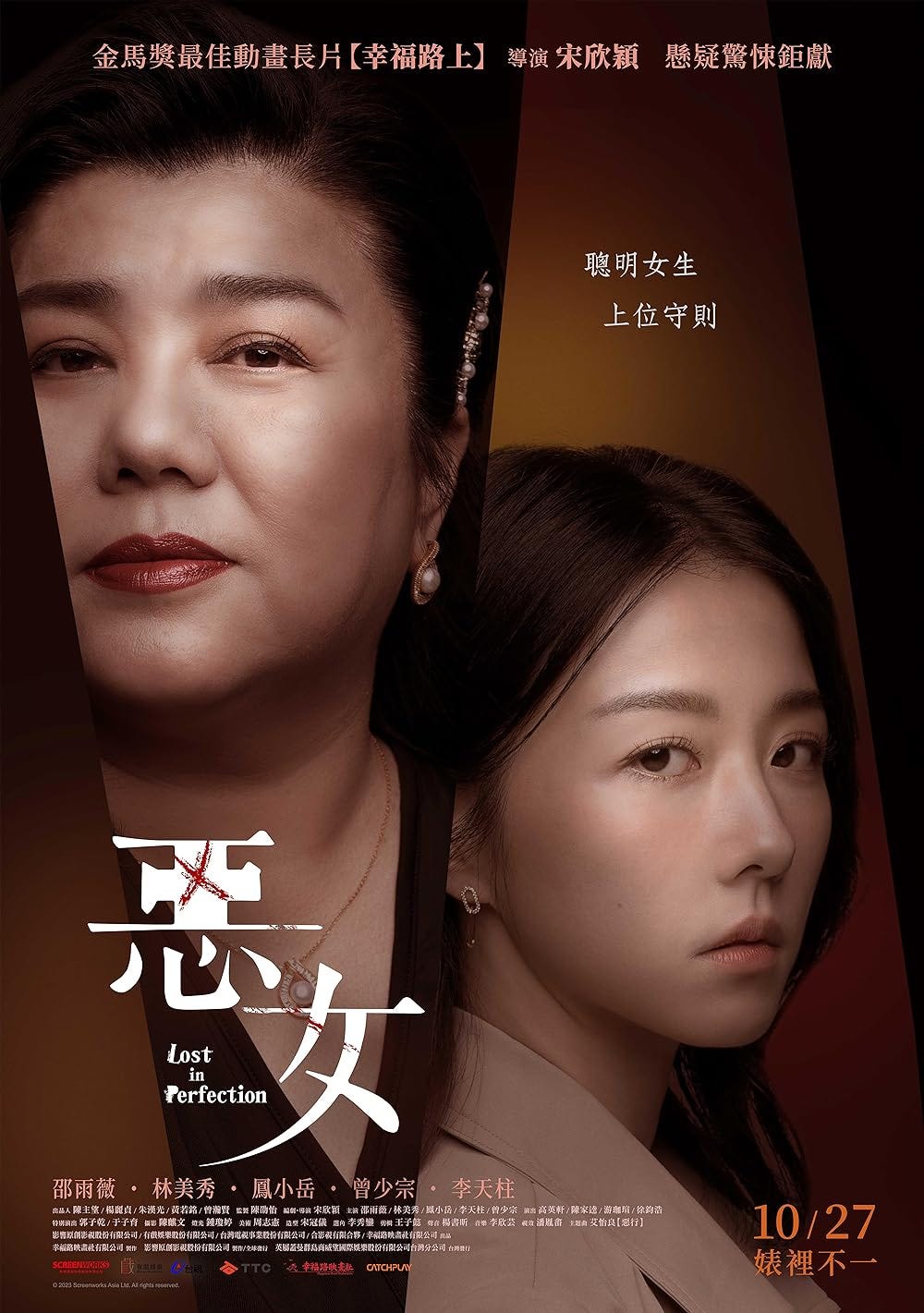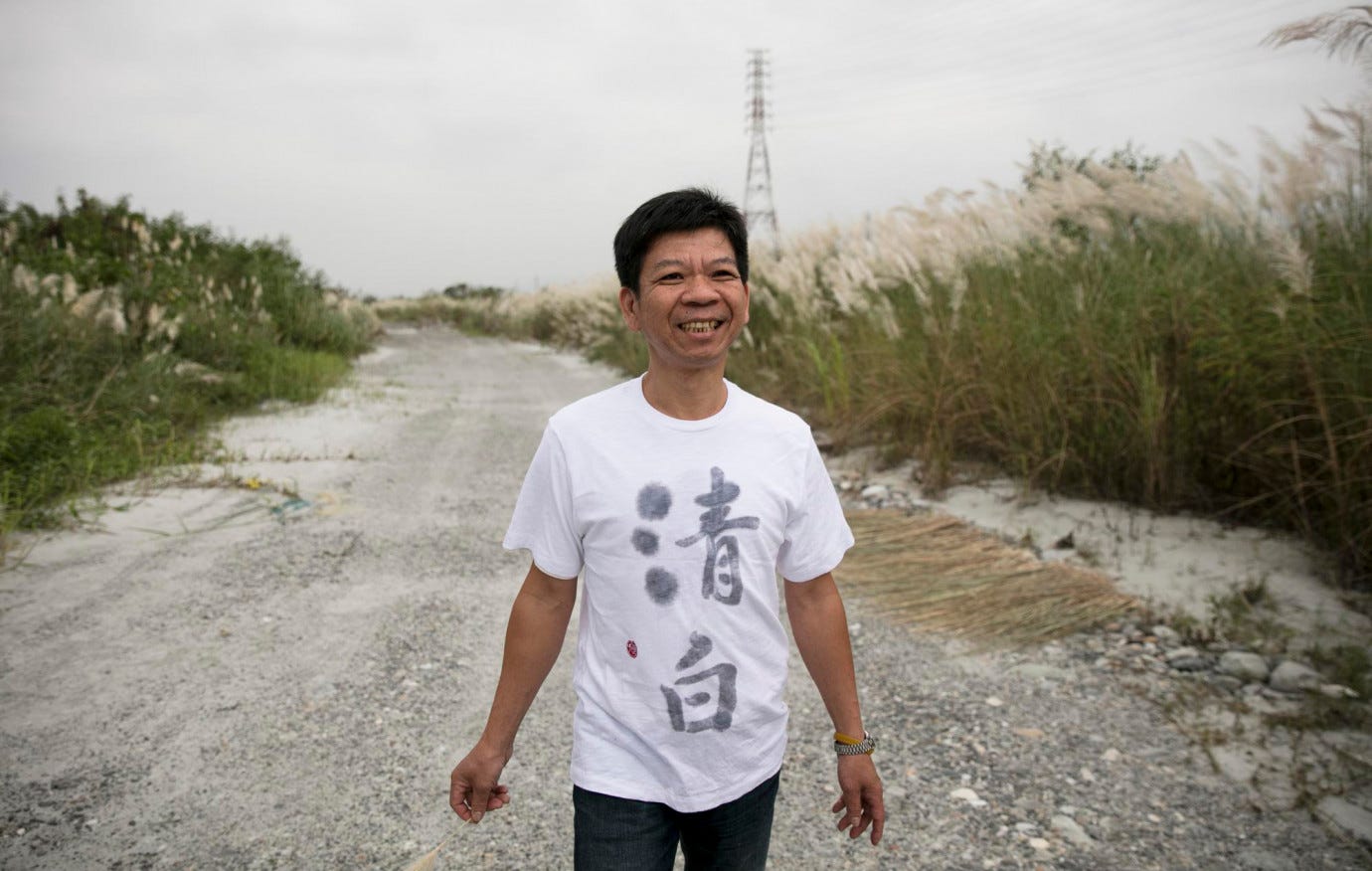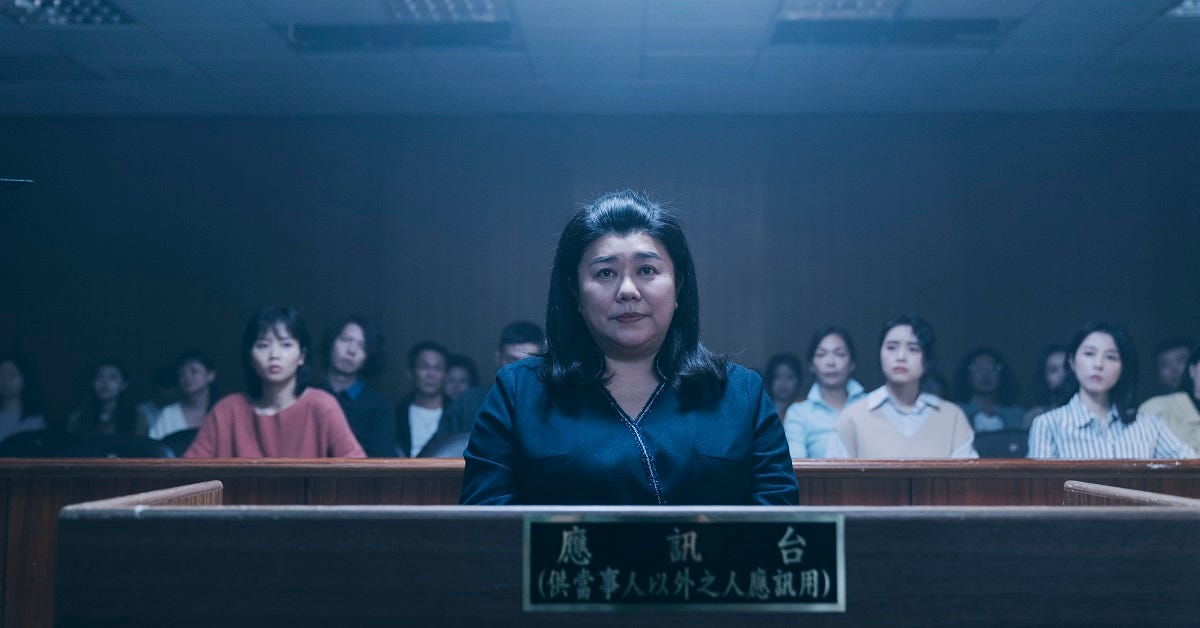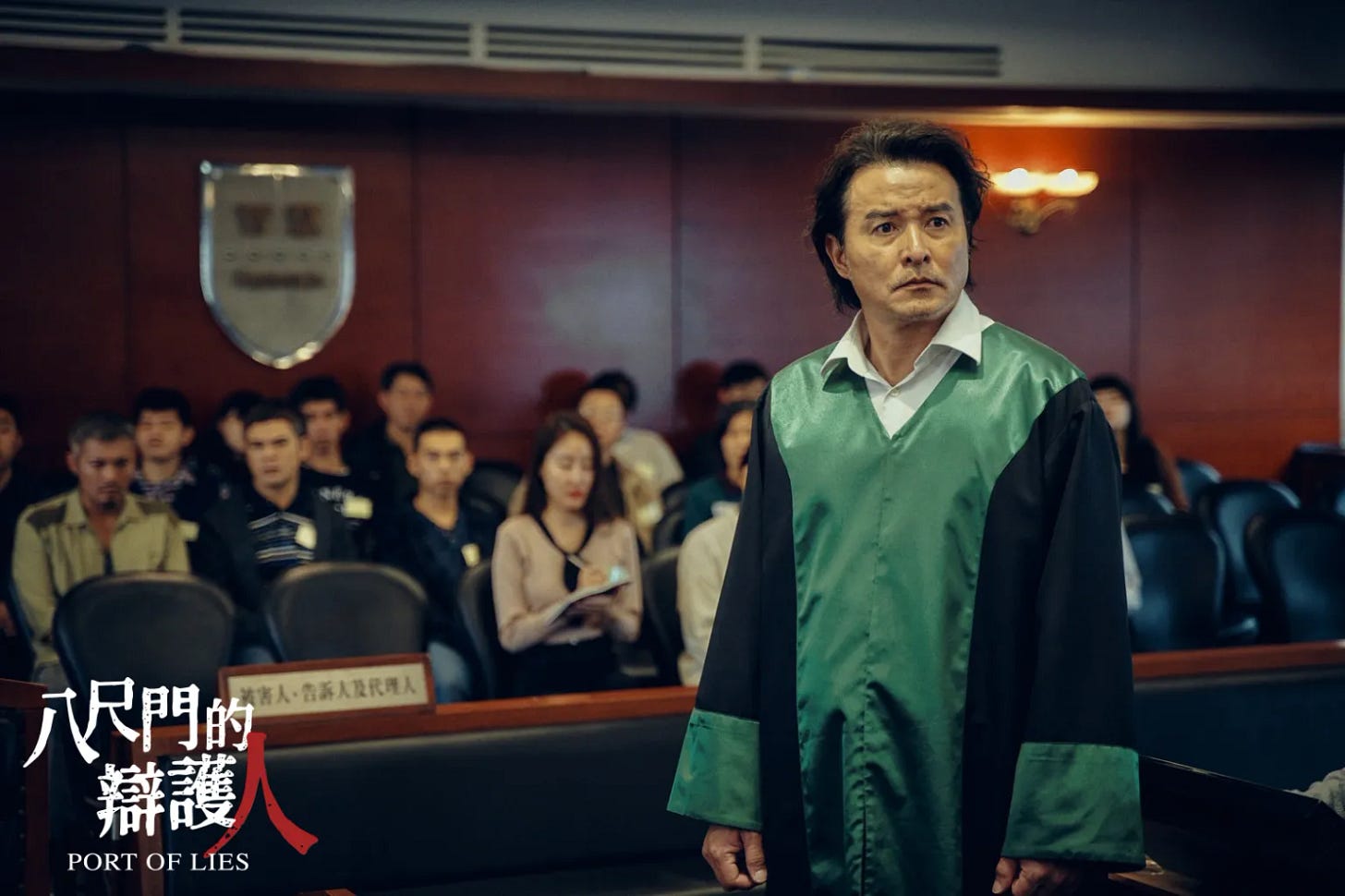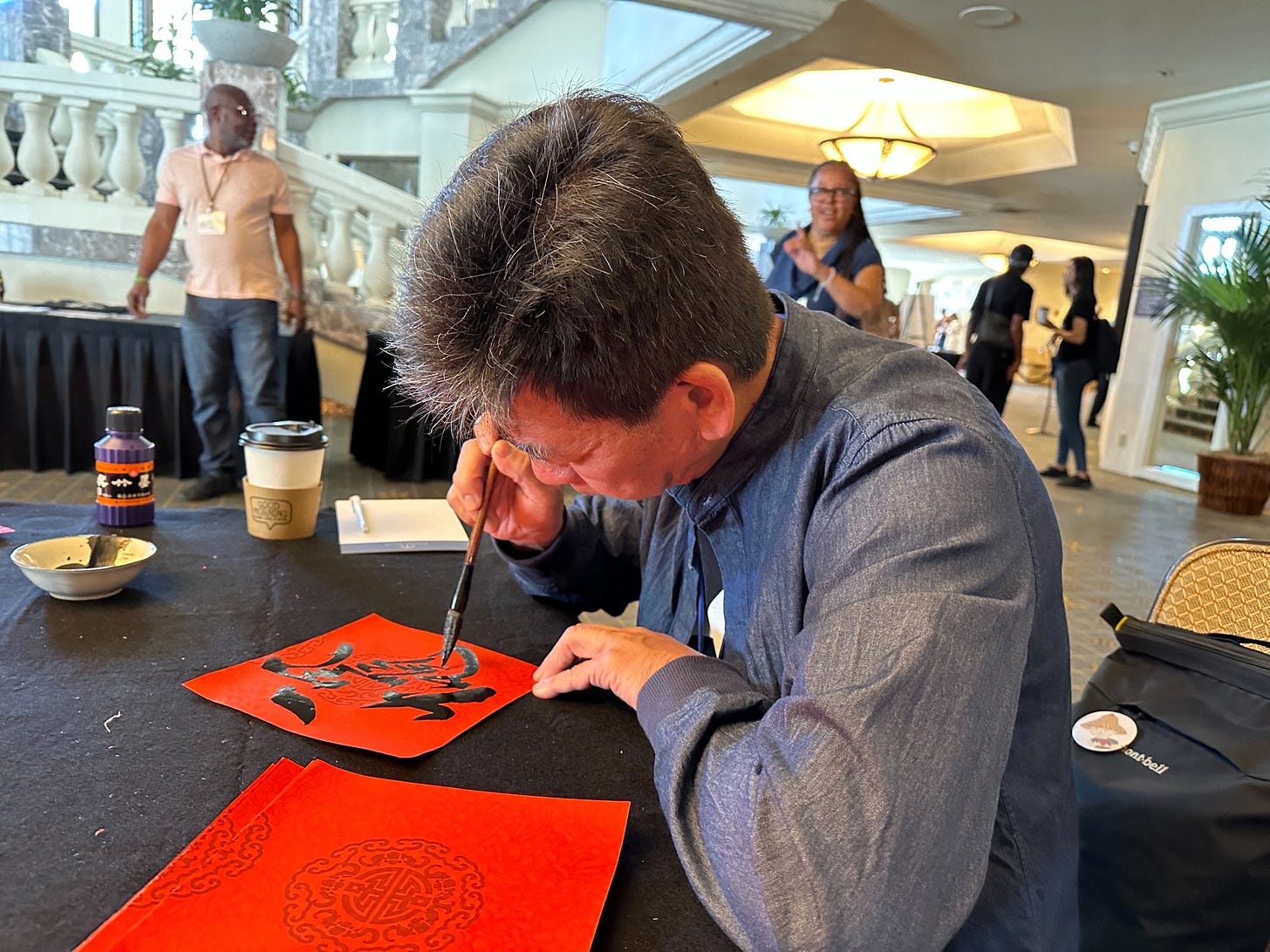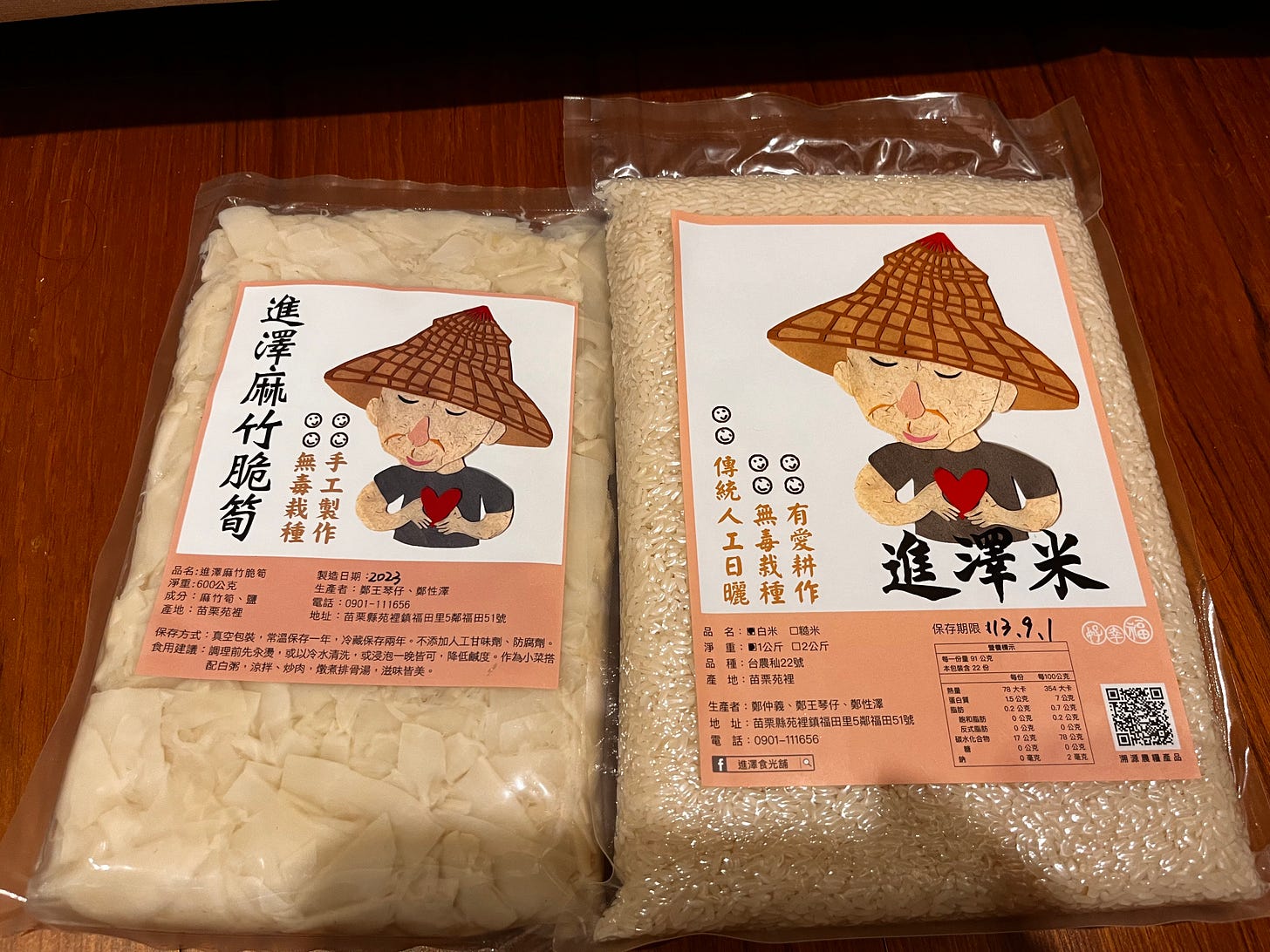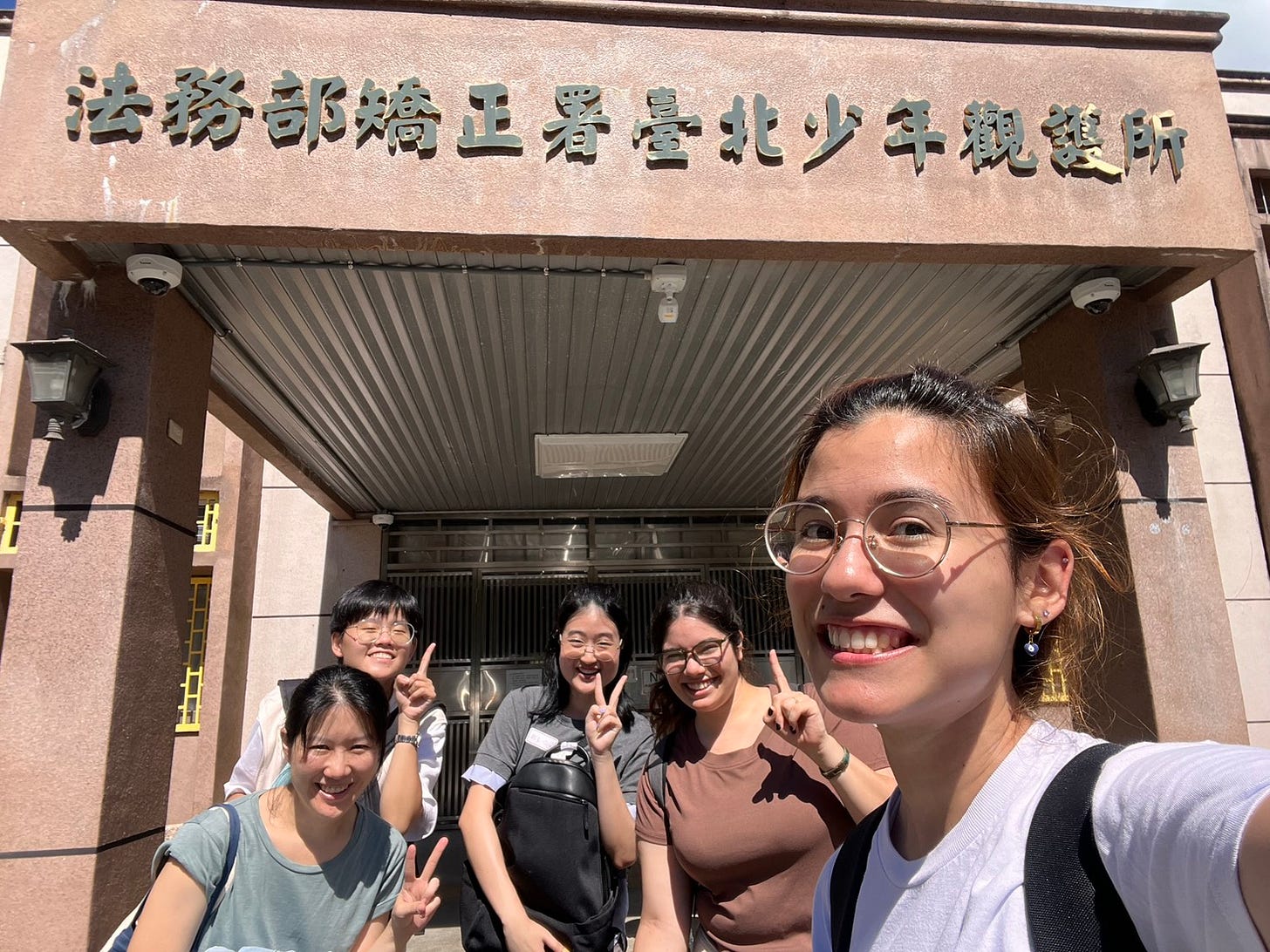Inspired by "Shovel Heroes"; Plus, Three Taiwanese Stories About the Death Penalty
And: upcoming events with Carol Steiker, scholar & death penalty abolitionist, New Bloom, and Invisible Nation event
Hello dear all,
Albert and Michelle here. A lot has happened in Taiwan since we last wrote. Flooding in Hualien, on Taiwan’s eastern coast, was caused by Super Typhoon Ragasa, which tore through the Philippines before moving on to China. At least nineteen people have died, and the hardest-hit area was Guangfu Township. In the aftermath, many criticized Hualien’s political leadership for issuing delayed warnings, as they knew the lake that caused the flood was vulnerable to collapse during heavy rainfall.
While the political fallout is still unfolding, what has inspired people in Taiwan is the overwhelming show of support from across the country. More than 30,000 volunteers—nicknamed “shovel superheroes”—have traveled to Hualien to help clean up and dig out homes buried in mud. Read Helen Davidson’s excellent reporting here, and here is a good video clip from TaiwanPlus that shows the solidarity that ordinary Taiwanese have shown in the wake of disaster.
This week we’ve had a long weekend (meaning no childcare, joy!!) due to the National Day of the Republic of China, which falls on October 10th. This means there are the usual parades and important speeches by important people. And, there are flags everywhere. Our no-longer-a-baby P. is very into flags these days and keeps asking whether that’s the flag of Taiwan; we keep having to tell her, well, it’s a little complicated.
In our household, we tend to mark October 10th for a different reason. It’s the World Day Against the Death Penalty. To observe the day, the Taiwan Alliance to End the Death Penalty (TAEDP) has organized its eight film festival that features films related to abuses of the judicial system. The sixteen films come from fourteen countries and explore how abuses and errors within the criminal legal system shape the lives of individuals and families.
To commemorate the day, we’re re-posting one of our older reflections. Some of the most compelling films and television produced in Taiwan in recent years have taken up the theme of judicial error. One of these films, To Meet to Forget, is also featured in this year’s festival. And if you missed the screenings in Taipei—don’t worry! The festival is going on tour, with showings on 25–26 October at Hualien Railway Cinema and 8–9 November at Neiwei Arts Center in Kaohsiung.
Three Recommendations: Port of Lies, To Meet to Forget, and Lost in Perfection
All of these stories center around a murder committed in Taiwan. All depict a defendant being sentenced to death. All depict the victim’s loved ones getting jerked around. All show how sensational journalism dehumanizes the person arrested for the crime. The truth—did he or she really do it? If so, why?—barely matters. Public dialogue remains impoverished; leaders don’t dare to speak, and the opportunity is missed to articulate important questions: How does social and economic advantage create crime? Why do people tend to believe that the person arrested is guilty, even before the trial has begun? How might we grieve the dead beyond calling for a defendant’s execution?
These three stories do more than just critique the criminal legal system; they dissect and obliterate illusions of meritocracy in a society whose winners were educated at top schools and have jobs that exert social and political power. Judges come across especially poorly in all of them. “The judge doesn’t listen to you. He convicts you on purpose,” says Cheng Hsing-tse, who spent fourteen years on death row for a crime he didn’t commit. Cheng, whose story is told in Yu-Lun Shih’s documentary To Meet to Forget, says this without much anger, as if he’s merely explaining a fact he learned the hard way. Of the Ministry of Justice, which reviewed the court’s findings, he says, “They don’t care if you’re innocent or not.”
Those words reflect the sum total of Cheng’s critique of the state. Of the three stories, To Meet to Forget is the most delicate and diplomatic in its depiction of the ruling class. Shih lets Cheng’s dignity and character speak for themselves. This makes sense, because we assume—and hope—that the film will be shown to prosecutors, judges, and future lawyers. One of Cheng’s diary entries reads: “A week ago, there was a murder of an elementary student in Beitou. And people started talking about the death penalty again. Legislators sought immediate execution of all on death row. As a result, the Ministry of Justice executed six tonight.”
By contrast, Port of Lies and Lost in Perfection, both fictional, are deliciously savage in how they dethrone the educated class. In the former, we see four mild-mannered judges playing mahjongg. As they shuffle tiles and sip tea, they make racist remarks about indigenous people. The scene is terrifying, in part because of how innocuous and commonplace these old men look. (If you’ve ever been to a Lunar New Year gathering, you’ve probably witnessed something similar.) One judge asks his colleagues to help him rig the distribution of cases in order to expedite the execution of an Indonesian migrant worker. Why? He wants his son, a law student, to stop working on the case. If the defendant’s dead, after all, there will be no conviction for his son to appeal. Dad is worried that his peskily idealistic kid will be “tainted,” and that this case will distract him from the track toward a prestigious career as a judge.
That Port of Lies eviscerates judges is a vital clue to the changing mores in Taiwan, where a test-based civil servant system creates belief in equal opportunity. Becoming a judge is especially hard: only the top 1 percent make it. (One law student told us that immediately after she passed the exam to become a lawyer—the bar exam here is curved steeply too, with a 10 percent pass rate—she was pressured by her mother to take the judge test.)
The Chinese title of Lost in Perfection (惡女)literally translates to Disgusting Woman, which is how a misogynist prosecutor describes someone he’s convinced is a scammer. The woman, who has only a high school education, dates men, cooks for them, cleans their homes, and takes care of their elderly mothers. They fall in love with her, give her money, and are so devastated when she leaves them that they commit suicide. The prosecutor believes she’s brainwashed and killed them, and his repulsion at how she earns her money reflects his assumption that he’s earned his virtuously. All the while, he relies on a journalist to do his job for him, asking her to distort stories and stir up public outcry.
Together, these films tell a story of elite contempt toward people in the margins: working-class women, indigenous communities, Southeast Asian migrant workers, those from rural areas, the incarcerated. In Taiwan, this contempt takes on a particular register: You didn’t study hard enough! You hung out with people who didn’t study hard enough! That’s why you’re where you are! These are hardly caricatures. Our current presidential candidate, Ko Wen-je, whom we wrote about last Sunday, tried to invalidate a critic by saying, “I went to a better school than him.” (Similarly, the mayor of Hsinchu, accused of wrongdoing, said she went to the best schools and therefore couldn’t possibly be guilty.)
These stories suggest a real historical shift in Taiwanese visual media. Half a generation ago, progressive films grappled with issues related to transitional justice: White Terror, repression, and censorship under martial law. While those stories are important, today’s trifecta shows how the popularity of the death penalty here acts as a portal to broader questions about social and economic inequality. Solidarity with minority groups, takedowns of meritocracy, and explorations of harsh penal attitudes are new themes, pointing to an exciting trend.
Read on to learn more about these stories.
To Meet to Forget
Cheng Hsing-tse—“A-tse,” as he’s known—spent fourteen years on death row before being found innocent. The most moving images in To Meet to Forget show his acts as a free man: planting rice on a paddy, mashing taro over a stovetop, getting a haircut, running along the ocean shore, taking a walk with his niece, reading letters from people still inside.
“Sometimes I think that I’m still in my thirties,” he muses, looking out at the Pacific. “But seeing how people have changed—seeing how my mom has gotten so old … It’s impossible. That pulls me back into reality.” He continues: “Time passes. Once it’s gone, it’s gone. You can’t start over. Just like how a person cannot be resurrected.”
Cheng’s case is famous among criminal lawyers here because it set an astonishing precedent: it was the first time prosecutors moved for a retrial. Nobody likes to admit they made a mistake, especially not prosecutors. “Prosecutors are their own country,” his lawyer once told me. Moving for a retrial could also be seen as a betrayal, a rough equivalent of snitching among police officers, since doing so is a strong signal to the judge that evidence tampering or misconduct has occurred. Last year, Cheng and former constitutional court judge Jade Hsu (許玉秀)—one of the good ones!—spoke together at a gathering sponsored by the Taiwan Innocence Project (TIP). Hsu, a key player, had herself convened a meeting to review the evidence in his case.
When you’ve been wrongfully convicted, you begin to see the world in binary terms: those who care and those who don’t. “Those who care will help us,” A-tse says. They listened, helped him find evidence. “As for those who don’t care, they won’t lift a finger even if they know. They have no intention to help you.”
One moving aspect of To Meet to Forget is how gracefully it depicts his decades-long, still-unfolding, warm relationship with those who cared, who fought for years to exonerate him. There are two major NGOs—TIP and Taiwan Alliance to End the Death Penalty (TAEDP)—and the documentary offers a glimpse of their members’ origin stories. One lovely scene shows the lawyer Lo Shih-hsiang, who now directs TIP, helping A-tse find the right size shirt. Another scene shows staffers at TAEDP and TIP helping him make a music video. These NGOs break apart the hierarchy between client and attorney, putting into action the activists’ aspiration to let people at the margins form solutions.
One surprising and powerful throughline of To Meet to Forget is the way it considers the position of victims and imagines what restoration might look like. The victim in A-tse’s case, a police officer, left behind a son in the fifth grade. Cheng vividly recalls the look of hatred the young son gave him at the funeral home. Almost two decades later, the son is a police officer himself. “Who will apologize to us?” he asks. The state has to apologize to him too. His family thought the whole time that A-tse killed his father; now they have consider this was not true. At the core is the desire for an apology: victims deserve one from the state as well.
“What would you say to him?” the director asks him at the end of the film.
“I don’t know, we’ll have to see when it happens,” he replies. We’ll just… go with the flow.”
The film suggests that, in meeting, they might find some hope of forgetting the confusion, grief, and unnecessary loss in their lives.
After the screening, A-tse hurried back to Taichung to dig up and plant radishes.
**Thanks to Chiting Wang, 王昱翔, Jada Wang, for helping locate photographs and quotes from To Meet to Forget.
Lost in Perfection (惡女)
This thriller brims with astute observations about class hypocrisy, sexism, and the symbiotic relationship between the media and the criminal legal system. Hsin-Yin Sung previously directed the wonderful Golden Horse–winning On Happiness Road (幸福路上).
The plot: a woman may have seduced and killed three men for their money. This scandal delights the public, in part because the accused is unattractive: not a model, a bit gaudy, older, not “cultured.” The media dubs her “Unattractive Femme Fatale.” Readers eat it up, the media brands her a killer, and the prosecutor ultimately benefits. “You made the prosecutor a hero!” one reporter says to her boss.
Meanwhile, the defendant claims she’s innocent. She cleaned and cooked for these boyfriends. In at least one case, she even took care of his sick mother. The men voluntarily gave her money and ultimately took their lives because they couldn’t handle it when she broke up with them.
Not so, say the prosecutor and the media: those men didn’t consent. They were “brainwashed.”
The assumptions underlying this claim are incredible. So a woman should never expect to be paid for cooking, for cleaning, for bathing her boyfriend’s sick mother? A man who believes that domestic labor deserves some financial compensation has been brainwashed? Another assumption has to do with attractiveness: if the woman were pretty and educated, then the men really might have killed themselves—but since she’s ugly and uneducated, she must have tricked them into liking her.
Feminists who launched wages-for-housework campaigns in the 1970s have long understood the basic idea that when domestic labor is unpaid, it doesn’t get valued. Instead it receives contempt. That contempt is systematically dismantled in 惡女, which also suggests how class divisions nurture it. Upper-class families outsource the cleaning, cooking, nannying, and caretaking of aged parents; this in turn keeps the marriage “pure” and insulated from disagreements about household labor and transactional exchanges.
The foil for the accused is a successful career woman, a TV anchor. She’s snobby and condescending, disdainful of how the defendant makes money; in contrast, she believes, her money is earned “purely” and her upcoming marriage to a wealthy dentist is uncontaminated. But how does she really earn her money? By feeding the public questionable stories that legitimize an off-the-rails penal system and distract from meaningful political and social issues. What are the financial dynamics of her marriage? Because her fiancé’s parents approve of her credentials, they made the down payment on her apartment.
惡女 inspired us to return to anthropologist Mary Douglas’s classic book Purity and Danger, which describes “creative formlessness” as a threat to order and power. Figures on the margins—Jews in England, Joan of Arc, Kachin wives—are kinds of sorcerers or witches whose “ambiguous status […] makes them appear as a danger to those belonging fully.” To those with power, they appear to be “intruders.”
Lost in Perfection is a feminist and uniquely Taiwanese take on the criminal legal system.
Port of Lies
The plot of this popular TV show: an Indonesian migrant fisherman kills an indigenous family of three, including a two-year-old. He is arrested, convicted, and sentenced to death. There’s little question that he did it. But why did he do it?
Directed and written by Tang Fu-rui, Port of Lies is set in contemporary Taiwan, with a large part filmed in Keelung, the country’s northernmost port city. (The show has real The Wire season 2 vibes.) The murdered family are Amis, the largest ethnic group among indigenous peoples in Taiwan. In the 1960s, families of Amis started moving to a harbor on the northern coast that was soon nicknamed 八尺門 (Bachimen, literally translated as “eight-foot door”)after the ramshackle houses built from abandoned shipboards. By the 1980s, around two hundred families lived in squalid conditions, and several high-profile news articles and photo essays shed light on their plight. In the 1990s, the government built new social housing and relocated them.
The show’s hero, Tung Pao-chu—in a wonderful, playful performance by Christopher Lee—is an Amis cousin of the victim who grew up in Bachimen who attended law school in Taipei and became a public defender. But now, unexpectedly, he’s been assigned to defend the Indonesian migrant who killed his cousin. Some of the most poignant parts of Port of Lies depict Pao-chu’s identity crisis: he left behind a life in Keelung to be part of an elite court system. Though he speaks up for “his people”—there’s a telling scene between him and a fellow law student, directly following a magnificent speech in which he tears down the state’s logic about the death penalty—his family back home thinks of him as a traitor. Meanwhile, he continues to wonder why he has to serve a legal system that’s historically screwed over his own community.
Pao-chu’s “success” story also points to the fact that more indigenous people have been absorbed into Taiwanese bureaucracy; another sympathetic character is an Amis cop. Few Amis have continued the traditional work of fishing. Faced with a labor shortage, Taiwanese fishing companies have recently had to rely on migrant workers to fill their boats—Taiwan has the second largest long-line fishing fleet in the world—and the majority of these workers come from Indonesia, Vietnam, Cambodia, and the Philippines. The working conditions on these boats are terrible: Taiwanese employers withhold wages, deny medical treatment, confiscate passports, and physically abuse, starve, and confine workers. The migrants are at sea for months at a time, sometimes even years. It’s modern-day slavery.)
The show is a gritty portrayal of this ugly business. Almost all the bad guys are the Han people who run everything: the courts, the businesses, Taiwanese society. The biggest villain is a local fishing tycoon who pits the indigenous and Indonesians against each other, making the indigenous captain do terrible things like throw a sea observer overboard. Here in the Kuo-Wu household, we started to heckle certain characters:
“Han striver!”
“Han supremacist!”
(At this our four-year-old daughter looked up, slightly frightened.)
The show depicts only one Han person who’s actually good: the aforementioned law student, whose judge father wants his son to stop being a bleeding-heart liberal. The son’s thesis is on psychological evaluations of people sentenced to death. He also has an unfortunate girlfriend, whom thankfully—spoiler alert!—he dumps. She too has passed the judge test. She’s obsessed with studying abroad, is wary of the anti–death penalty movement (she has to stay apolitical for her career’s sake), and sees the world in flat, instrumental terms. At one point the law student tells her he plans to write another paper about the death penalty, and she asks why in the world he would do that. Then, thinking out loud, she reasons, “Well, there’s a requirement to write a paper in our judge training, so it’s not a total waste of time.”
Another scene shows a new twist on Taiwan’s plight as an unrecognized nation. The villainous fishing tycoon justifies his evasion of international fishing rules by observing that the UN is extra hard on Taiwan, which doesn’t have any representatives to defend itself. (We’ve heard from an environmentalist friend that the UN slapped Taiwan with fines for endangering wildlife, while it looked the other way for similar offenses by other countries, including China.)
Finally, Port of Lies portrays the multiculturalism and multilingualism of Taiwan with grace. In some scenes, at least five languages are spoken on screen: Amis, Mandarin, Taiwanese, Indonesian, English. Particularly thrilling is hearing the indigenous characters mix Amis, Mandarin, and Taiwanese. Pao-chu’s signature line—“Holy Mazu!”—is a mix of Taiwanese and English, and a syncretic nod to the mixture of Catholicism and Taiwanese popular religion. (Mazu is the goddess of the sea in Chinese popular religious canon, and can often appear in popular iconography, like Mary, mother of Jesus.)
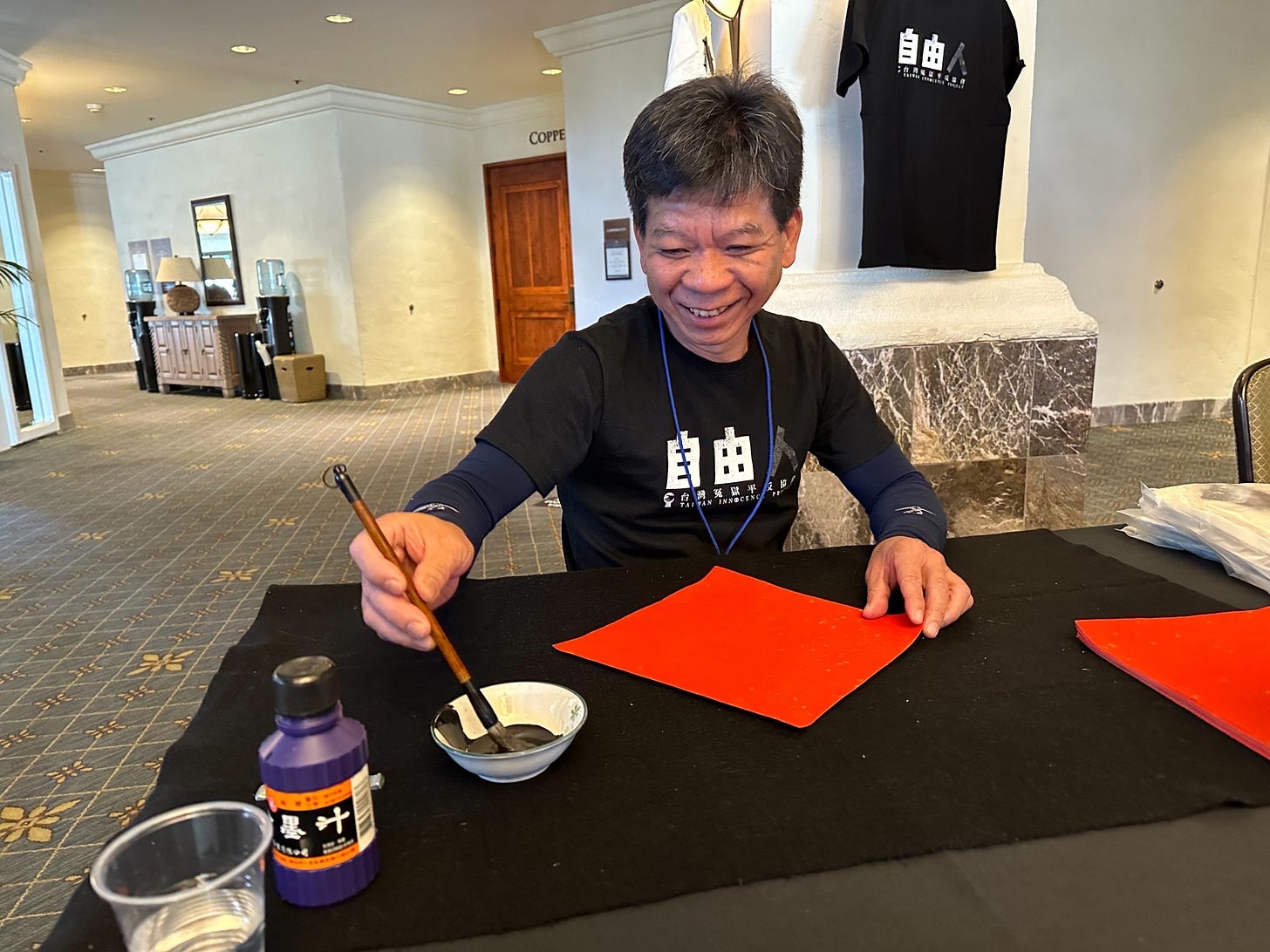

Upcoming events with Carol Steiker, New Bloom, and Invisible Nation; plus, related links on the death penalty
Upcoming events with Michelle in Taipei:
On October 26th 7 PM (EST), I’ll be moderating a virtual conversation inspired by Vanessa Hope’s wonderful film Invisible Nation, examining Taiwan’s experience and what it can teach the world about protecting democracy. If you’re interested, let me know.
On November 22nd, Saturday, I’ll speak at Daybreak & New Bloom about Taiwanese comics, graphic novels, and children’s books and Books from Taiwan. I’ll be in conversation with Brian Hioe, Elizabeth Hsinyin Lee, and Michael Fahey and will be bringing a full suitcase of books. The time hasn’t been set yet, but feel free to reply if you’d like to attend.
On November 13th, Thursday at 7 PM, I’ll moderate a conversation at Touat Books between Carol Steiker, a scholar and death penalty expert at Harvard Law School (and my very dear former teacher—she’s a legend and has a heart of gold), and the Taiwan Alliance Against the Death Penalty (TAEDP). Professor Steiker will also be giving two major lectures earlier in the week; many thanks to Chengyi Huang (see our interview with him) for organizing:
November 12th, 10 AM–12 PM: “The Prospects of Worldwide Abolition of the Death Penalty” at Academia Sinica. This will be moderated by the law institute’s director Chien-Liang Lee, and the discussant is lawyer Nigel N.T. Li, a lifetime advocate for abolition in Taiwan.
November 13th, 10 AM–12 PM: “Challenges Facing Justice Reform in a Time of Political Backlash” at National Taiwan University College of Law. This will be moderated by Jade Hsu, former Constitutional Court justice, with Professor Kai-ping Su, who teaches at National Taiwan University College of Law, as the discussant.
Other related links:
A short documentary depicts the forty-eight hours following A-tse’s release, directed by Shih. We love the scene where he jumps over a fire, a Taiwanese folk ritual whose aim is to kill evil spirits.
Our piece last fall about sensationalistic news and the death penalty in Taiwan; plus an interview with TAEDP’s leaders and with Chengyi Huang.
Michelle’s piece about restorative justice in New York Review of Books
On E.P. Thompson, judges, and judge fetishization in law school
A smart review of Lost in Perfection (in Mandarin)
Singapore executed Pannir Selvam Pranthaman on October 8th, 2025. As tireless activist and writer Kirsten Han writes in We, the Citizen:
His older sister Sangkari told me that, when he was younger and free, Pannir was never really one for studying. While on death row, though, Pannir began to read—first in Malay, then in English—and then to write. He was prolific, producing poetry and songs that shared his thoughts on death row conditions, on his love for his family, on his disdain for scheming politicians, on current affairs and the state of the world.
His first poetry collection, Death Row Literature: A Collection of Poems, was officially launched just one week before he received his third, and last, execution notice. Among the belongings that the prison handed over to his family post-execution was the manuscript for a second poetry collection. His words were a window into his inner life, reminding us that prisoners aren’t faraway, abstract characters, but people who think and dream and feel, too.
Becoming a poet and a writer from death row—armed with only loose sheets of paper and ballpoint pen refills—is already an impressive feat, but Pannir didn’t stop there. He persuaded his sisters to set up an NGO, Sebaran Kasih, to serve vulnerable communities and death row families in Malaysia. He asked them to get his songs professionally produced, even pinpointing the Malaysian artistes he wanted to perform his music. He encouraged them to step up to campaign not just for him, but for an end to the death penalty as a whole.
Book Club Details
We loved talking to you all about Patricia Engel’s Veins of the Ocean! Our next book club is Friday, October 24th 7 PM EST / Saturday, October 25th 7 AM Taiwan time. We’re going to read Sally Rooney’s Intermezzo for the October book club. After, we’ll be reading Miranda July’s All Fours, Budi Darma’s People from Bloomington, Twain’s Huckleberry Finn, Percival Everett’s James, and Natalia Ginzburg’s Road to the City. The book club is open to all paying subscribers. Thanks to our book club members for their suggestions! Please reply to this email for a zoom link.
And finally, we had our first day of class at the women’s juvenile detention center in Taipei this week. Every week, I take five NCCU students, and together we write poems & stories together. I wrote a little bit about this last year, but this is the first time I feel like I’ve gotten the hang of it.




